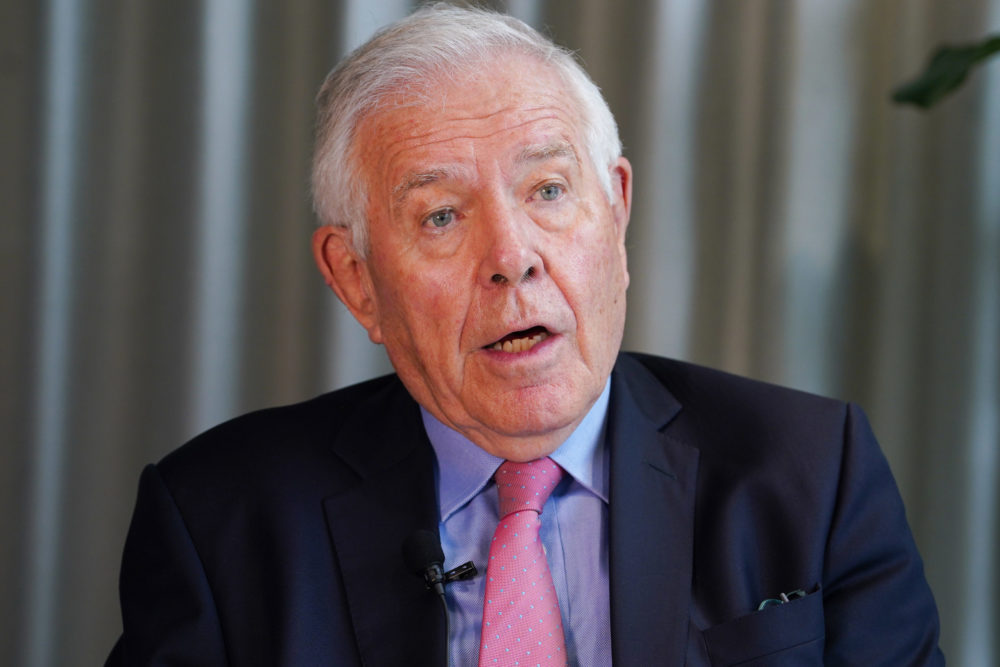Rogue funeral directors free to ‘keep bodies in their garage’, inquiry warns

Funeral directors could work at home and keep bodies in their garages, an inquiry chairman warned, as he called for urgent regulation of the industry.
Sir Jonathan Michael, who is investigating how people who have died are looked after in the wake of necrophiliac killer David Fuller’s mortuary abuse, said he was “personally shocked” to find funeral directors do not need a licence, qualifications or training, and described the sector is an “unregulated free-for-all”.
Appalled
He said many people would be appalled to find the sector goes unchecked and anyone can set themselves up as a funeral director.
Publishing his latest findings on Tuesday, he urged the Government to bring in a regulator for funeral directors in England as a “matter of urgency” after uncovering “horrifying examples of poor practice”.
Branding the system “fundamentally flawed”, he told the PA news agency the lack of controls were “unacceptable” and warned it had given rise to “rogue” funeral directors operating with impunity.
“There are no organisations in England with the power to prevent funeral directors operating on the basis of poor practice or neglect not deemed to be criminal.
“We need a regime that will not tolerate any form of abuse or any practices that compromise the security and dignity of the deceased,” he said.
‘Systemic failure’
Although overall he found the funeral sector to be a “caring” profession and said in general people who had died were being treated with “kindness, dignity and respect”, he warned there were “exceptions” and his conclusions could indicate “systemic failure” to protect people who died through a lack of standard policies.
“We can’t avoid the fact that there were some really quite horrifying examples of poor practice,” he said in a PA interview.
The report highlighted alleged incidents including a funeral assistant taking photos of a person being embalmed, of people being left to decompose or covered in mouldy sheets, and the sexual assault of a dead woman by a funeral director in the 1990s.
“The fact is that anyone can set themselves up as a funeral director,” he said.
“They could do it from their home and keep the bodies of the deceased in their garage without anybody being able to stop them. That cannot be right.”
Sir Jonathan is scrutinising funeral directors, private mortuaries and ambulances as part of a probe into Fuller’s crimes.
Public inquiry
The Government launched the public inquiry after the maintenance worker sexually abused the bodies of more than a hundred women and girls aged between nine and 100 while employed at the now-closed Kent and Sussex Hospital and the Tunbridge Wells Hospital, in Pembury, between 2005 and 2020.
The first phase of the inquiry, which looked at his employer Maidstone and Tunbridge Wells NHS Trust, found Fuller was able to offend for 15 years without being caught due to “serious failings” at the hospitals he worked at.
Sir Jonathan said the latest report followed “distressing” allegations of neglect as police investigate a funeral directors in Hull.
Humberside Police said detectives had been working “around the clock” since concerns were raised at Legacy Independent Funeral Directors in March “about the storage and management processes relating to care of the deceased at the funeral directors”.
The inquiry chairman said it was “right and proper” that looking into Fuller “led to questions about the security and dignity of the deceased”.
Licenses
Setting out how the regulator should have the power to issue licences, demand compulsory standards, inspect funeral directors and take enforcement action, Sir Jonathan said he hopes publishing the report will help ministers and funeral homes to “take steps that assure the public that the sector is fit for purpose and will not tolerate any form of abuse or practice which compromises the security and dignity of the deceased, including that caused by neglect”.
It should be mandatory for customers to be given information about how funeral directors will care for their loved ones and what measures are in place to protect them so the sector is more transparent in how it operates, the report added.
Industry bodies welcomes the calls for a regulator although the National Association of Funeral Directors said it is “important that it is proportionate”, while the National Society Of Allied And Independent Funeral Directors (SAIF), warned reform should not come at a cost to customers.
Health Secretary Wes Streeting said the Government was “committed to preventing any similar atrocities happening again and ensuring that the deceased are safeguarded and treated with dignity”.
Officials said the Government would consider the recommendations and respond at a later date.
The inquiry, which has so far cost £2.8 million, is yet to publish its final tranche of findings and said it expects ministers to confirm its plans for a regulator before this happens.
Support our Nation today
For the price of a cup of coffee a month you can help us create an independent, not-for-profit, national news service for the people of Wales, by the people of Wales.





The first consideration is that of hygiene and public health so that bodies are held in decent sanitary conditions minimising decomposition while in the mortuary and with appropriate drains for fluids. Fully trained staff need to know about biohazards like Hepatitis B etc. It is bizarre that this sector has escaped proper regulation. Now that funerals are taking so long to arrange it is even more important that holding conditions are safe and hygienic.
Think of a number and double it…rogues !